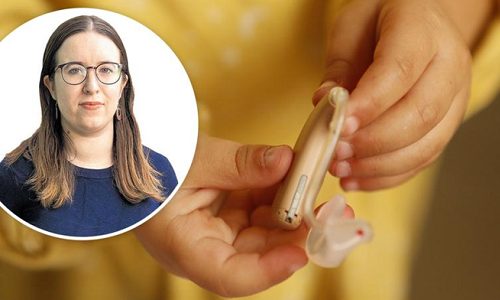My experience with hearing loss support shows ‘fixing’ Labor’s NDIS will be no easy feat
By Annabel Hennessy writing for The West Australian
I was 21 and just about to graduate from university when I was first diagnosed as hearing impaired. When he looked at the scores from my hearing test, the audiologist said he was surprised I’d been able to complete my degree without a hearing aid.
I’d struggled with hearing since I was in school but, like a typical teenager, had put off doing anything about it. Hearing loss was something I’d associated with elderly people, and I didn’t know anyone my own age who used a hearing aid.
But what did make the initial diagnosis easier was that I was eligible to receive free hearing aids through the Federal Government’s Hearing Services Program for 21–25-year-olds. This was simple to access, and I was approved almost immediately.
By contrast, I recently investigated whether I would be eligible to access NDIS funding to get new hearing aids and was shocked at how confusing it was. I was aware of complaints about the schemes’ bureaucracy but naively assumed my background as a journalist would mean I would be able to find the right information.
It also emerged that despite my hearing loss is severe enough that my audiologist was surprised I was able to complete university without hearing aids, it’s not bad enough to qualify for the NDIS.
This is because NDIS guidelines use a hearing loss of at least 65 decibels, in whichever is the better ear, to determine whether someone should get access. I have high-frequency loss which means because I’m better at hearing low-frequency sounds my overall score is dragged up.
Unfortunately, there aren’t too many other Government funding options for hearing impaired people if they don’t meet NDIS criteria. For me, I’m now too old for the scheme for under 25s but also a few decades too young for the scheme for over 65s. Hearing aids are not covered by Medicare.
I’m lucky that I am employed full-time, so I ended up getting a loan that I pay off monthly to cover the cost of my new hearing aids. But in total, the hearing aids cost $8000, which would not be accessible for many.
I wouldn’t want to suggest my experience in anyway comes close to some of the horror stories we have heard from the NDIS, but it did give an insight into how tricky it can be to navigate.
Labor went to the election promising to “fix” the NDIS. However, “fixing” the scheme is no easy feat. It’s also worth noting Labor haven’t promised a bigger overall NDIS spend. They’ve instead said they will “stop waste in the system” and use these savings to better fund supports.
The question of eligibility requirements is undoubtedly going to be a tricky one. The NDIS has typically focused on more severe disabilities. However, there are those who have not met NDIS criteria who clearly need some form of support.
Often when we talk about spending on infrastructure it’s done through the lens of job creation, perhaps we should be thinking the same way about the NDIS.
Image credit: Pixabay, The West Australian

